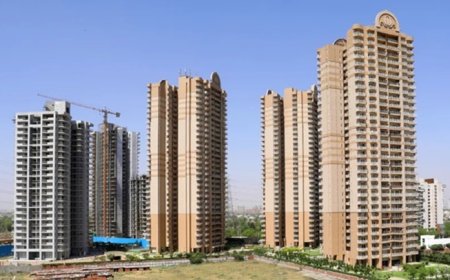What documents are required for renting villas in Doha?
Renting a villa in Doha, the capital of Qatar, is a structured process with specific documentation requirements. Whether you're an expatriate relocating for work, a family seeking more space, or an investor looking for a long-term stay, having the right documents in place is crucial to avoid delays or complications. The real estate market in Doha is regulated and competitive, and landlords or agents often require a set of standard documents to process rental agreements smoothly.
Personal Identification Documents
The first and most essential requirement is a valid form of identification. For Qatari citizens, this typically means presenting a Qatar National ID. For expatriates, a valid passport along with a Qatar Residence Permit (RP) is mandatory. The RP proves your legal right to stay in the country and is often a prerequisite for entering into any legal contract, including tenancy agreements. Without a valid RP, most landlords will not proceed with rental procedures.
Employment and Salary Verification
Many landlords in Doha require proof of employment or income to ensure that the tenant can afford the rent. This typically comes in the form of a salary certificate issued by your employer, ideally on official letterhead and stamped. It should state your job title, monthly or annual salary, and contract duration. Some landlords may also request recent bank statements (usually the past three to six months) to verify the consistency of income and your financial stability.
No Objection Certificate (NOC)
In some cases, particularly when the rental is being processed through a company-sponsored arrangement, you may need to submit a No Objection Certificate (NOC) from your employer. This document confirms that your employer is aware of and consents to you renting a specific property. While not always necessary for every rental, it is commonly requested for high-value properties like villas.
Tenancy Contract
Once the documentation is reviewed and approved, a tenancy agreement or rental contract is drafted. The contract must be signed by both parties and often requires notarization or attestation, especially when used for official matters such as obtaining internet, water, or electricity connections.
Security Deposit and Post-Dated Cheques
It is common practice in Doha for landlords to request a security depositusually equivalent to one months rentalong with a set of post-dated cheques for the remaining lease period. These cheques act as a guarantee for monthly rental payments and are post-dated according to the rent schedule agreed upon in the contract. Tenants must have a local Qatari bank account to issue these cheques, which adds another layer of documentation: proof of bank account ownership.
Proof of Address or Utility Bills (If Available)
Some landlords may ask for a previous tenancy agreement or a utility bill from your current or previous residence. This helps them verify your rental history and confirm your reliability as a tenant. Although not always a requirement, having this documentation can work in your favor, especially when negotiating the terms of your new rental.
Real Estate Agent License and Authorization
If you are dealing with a real estate agent, ensure that the agent is licensed and authorized to conduct rental transactions in Qatar. Reputable agents will usually ask for your documents and will also provide you with a signed brokerage agreement.
Residence Permit Renewal Documentation
If your Residence Permit is close to expiring, landlords may request proof that it is being renewed. This might include a letter from your employer or an official renewal application receipt. Landlords want to ensure that your legal status will not lapse during the lease term, which could potentially cause disruptions.
Family Documents (If Applicable)
For families moving into villas, additional documents may be required. These include the spouses and childrens passports and Residence Permits. In some cases, schools might request proof of residence for registration purposes, so having a finalized and attested rental contract is beneficial for families relocating with children.
Property Registration with Municipal Authorities
After the agreement is finalized, the property may need to be registered with the local municipality. This step is particularly important for tenants who need to use the lease as proof of address or to apply for utility connections. For example, connecting to Kahramaa (Qatars water and electricity authority) usually requires a copy of the tenancy contract and the tenants ID or RP.
Things to Know Before Renting a Villa in Doha
When considering Villas for Rent in Doha, its important to understand the unique aspects of the Qatari rental market. Villas can range from standalone units to those within gated communities, often with facilities like swimming pools, gyms, and playgrounds. These luxury features influence both the rental cost and the paperwork required. Landlords are more stringent with documentation for high-end properties, often conducting thorough checks before finalizing contracts.
Additionally, tenants should review the maintenance clause in their rental agreement. Some landlords include annual maintenance costs in the rent, while others expect tenants to cover minor repairs themselves.
Duration and Renewal Clauses
Standard villa leases in Doha are for one year, with the option to renew. Renewal terms should be clearly outlined in the initial agreement. Some landlords may require updated documentation for renewal, such as a new salary certificate or updated RP. Ensure that the renewal clause does not include automatic rent increases unless mutually agreed upon.
Legal Considerations and Dispute Resolution
All tenancy contracts should be in line with Qatars rental laws. In case of disputes, tenants can approach the Rental Dispute Settlement Committee. Having all your documents in order, including a signed and notarized contract, receipts of payments, and correspondence with the landlord or agent, will strengthen your case in such scenarios.
Final Thoughts
Renting a villa in Doha is a relatively straightforward process if all required documents are prepared in advance. Prospective tenants must ensure they have valid identification, employment proof, bank documentation, and a proper understanding of lease terms. Families may require additional paperwork, and expiring documents should be renewed in a timely manner. Due diligence with agents and contracts ensures a hassle-free move-in experience.
Dohas rental market continues to grow, with demand for villas driven by both local families and expats. The city offers diverse options, from luxury properties in The Pearl to more budget-friendly villas in suburban areas. With the right documents and a clear understanding of the process, renting a villa can be smooth and efficient.
For further insights on living in the city, you might explore related articles like the average living expense in Qatar, which can help you plan your budget when considering rental options.



































